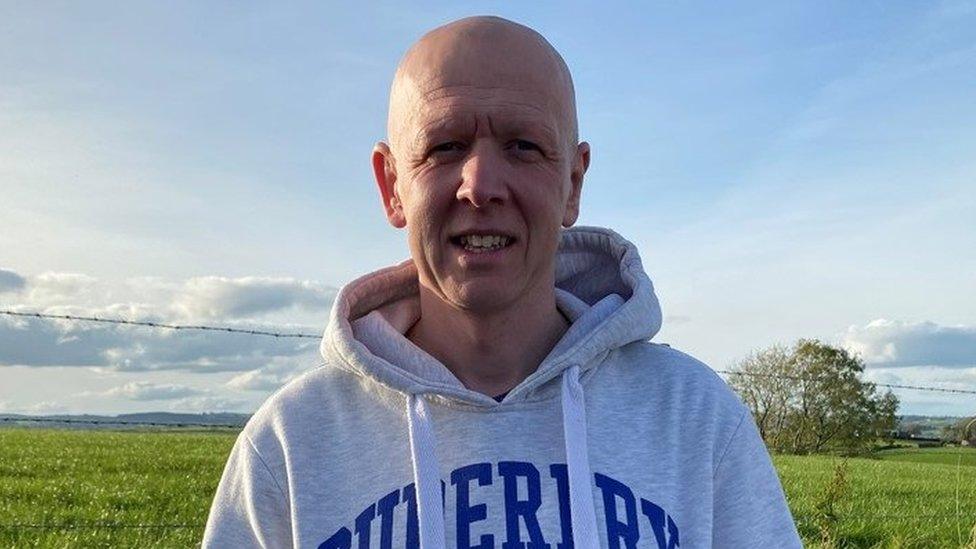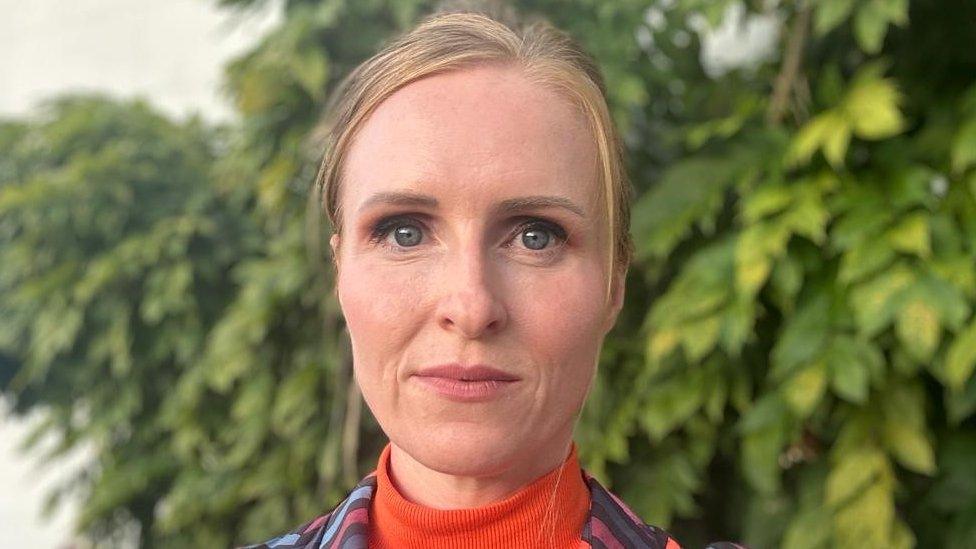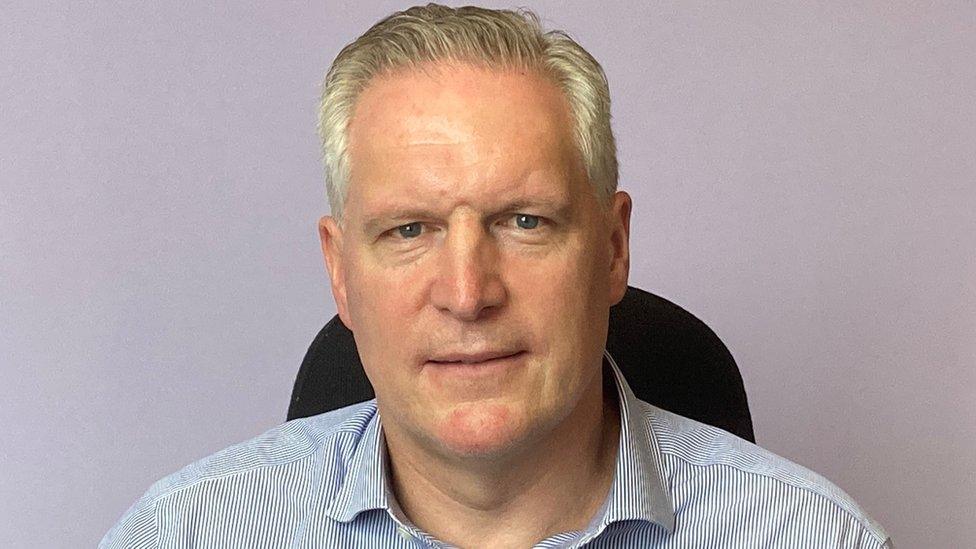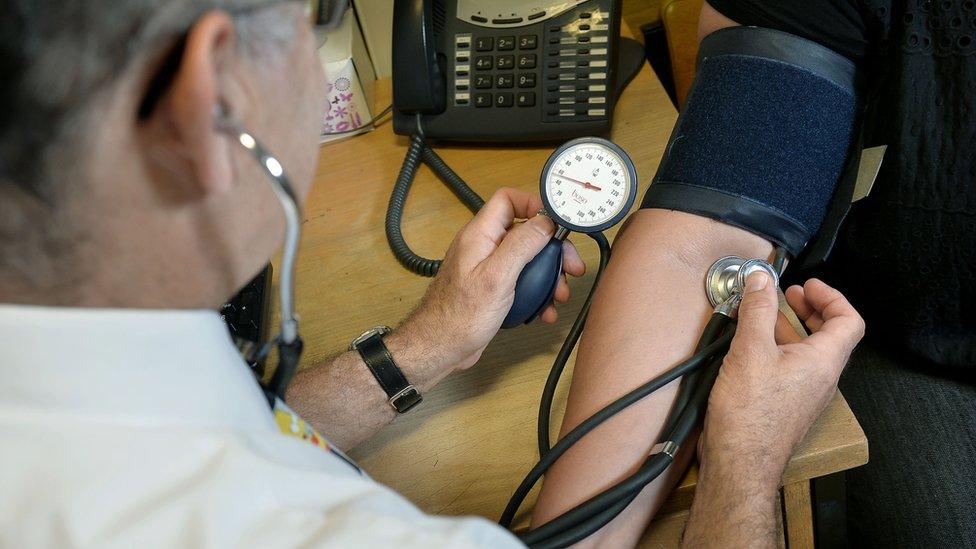GP vasectomy service halt 'a devastating blow' for families
- Published

Stephen Camley, 44, said he was "trying to do the right thing" by getting sterilised
Stephen Camley, 44, has been on a hospital waiting list for a vasectomy since 2019.
Fed up waiting, he contacted his local health trust, who told him the system was at a "standstill" and referred him to the community GP service.
But several weeks ago, he was told that GPs are stopping carrying out vasectomies amid funding cuts - and one of his options was to go private.
GPs are trained to perform vasectomies, to help tackle hospital waiting lists.
They are angry they cannot provide this service, according to the chair of the Northern Ireland GP Committee, Dr Alan Stout.
Speaking to BBC News NI, Stephen said: "We want to deal with contraception as a couple and I want to have a vasectomy to take that pressure off my wife."
Dr Alan Stout said Northern Ireland now has a system "designed to create waiting lists and we recurrently fail to change this".
He told BBC News NI that GPs got trained up and supported transformation, but are now part of a system that is going backwards again.
Since 2019, 5,648 vasectomies - or male sterilisation - have been completed by GPs in the community.
A further 3,500 were booked but have now been cancelled, with most reverting to a hospital waiting list.
According to Dr Stout, with so much pressure on the health service, procedures are being prioritised - which most likely means that most vasectomies will "never get done".

Dr Fionna McDonald says the loss of the GP vasectomy service will put more pressure on women
Dr Fionna McDonald described the loss of the GP vasectomy service as a devastating blow to families and family planning in Northern Ireland.
"Men who were wanting to take the lead with contraception, and unburden their partners by putting themselves forward for vasectomies, will now be transferred to languish on secondary care urology waiting lists," she said.
"Given the immense pressure on secondary care waiting lists - particularly urology, where waiting times are historically some of the longest in NI - the reality is they will wait many years to be seen, if ever."
Dr McDonald said this is compounded further by a "patchy IUD [intrauterine device, also known as a coil] provision and huge waiting lists for female sterilisation".
Waiting times doubled overnight
Earlier this year, GPs learned that funding had been halved for services treating acne, psoriasis and adult and child eczema, as well as for gynae support services, HRT advice, contraception, and MSK (musculoskeletal) support.
This means that surgeries will only be able to see 50% of those on waiting lists.
Dr McDonald said that the onus is now entirely on women to take responsibility for contraception which, she said, will add to health inequalities and complicate matters for women where hormonal contraception is not an option.
"Unfortunately for women, their access to a full range of contraceptive options has been drastically reduced as funding for GPES (GPs with extended skills) gynaecology services has now been cut by 50%.
"So, we have a group of highly trained and dedicated GPs with extended skills in providing contraceptive care, who are hugely motivated and passionately want to provide this service.
"But currently, the most each GPES gynae can offer is one clinic per month, so waiting times for this excellent service have doubled overnight."

Dr Alan Stout has previously said the health service in Northern Ireland is in crisis management mode
Dr Alan Stout also pointed to the withdrawal of such community services as putting further strain on families, by risking unwanted pregnancies at a time when many people are struggling to make ends meet. Dr McDonald agreed.
"It seems very short-sighted to make these money-saving cuts in essential contraceptive services, which will have a much bigger impact on family and society over the next few years when the financial, social and psychological impact will really be felt," she said.
'Temporarily suspended'
The Department of Health told BBC News NI the primary care vasectomy service has been suspended temporarily.
"While the primary care vasectomy service has had to be temporarily suspended, no decision has been made to cease this service," a spokesperson said.
"The Department of Health remains committed to the delivery of elective care services in primary care, in line with the strategic direction of the elective care framework."
The department added that £2.1m will be used to support the continued roll-out of primary elective care across five areas, including gynaecology, minor surgery, musculoskeletal and non-scalpel vasectomy, until March 2024.
"The department continues to work with GPs to enable continuation of all pathways within the available funding," a spokesperson added.
Related topics
- Published12 March 2023

- Published28 July 2023
